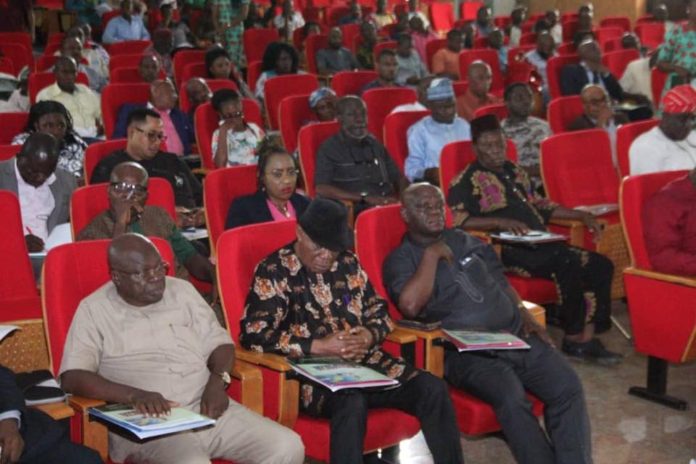On Wednesday Stakeholders in the Oil and Gas operations in Bayelsa State have tasked the Federal Government to review the National Policies on Agriculture to take cognizance of the geographical and peculiarities of the Niger Delta region.
The Stakeholders have also said that such a review will reduce unemployment, the participation of youths in illegal bunkering and also reduce cases of oil spillage in the region.
The stakeholders made the call in Yenagoa at the presentation of a research report titled “Sustainable Livelihood Assessment in Bayelsa State: Effects of Vandalism, Bunkering and Artisanal Refining on Livelihood” by Safe Environment Advocacy group known as the Fostering Achievement of Community Empowerment (FACE Initiatives).
The stakeholders include members of the Security agencies, Bayelsa State Commissioners of Agriculture, Environment, Labour, Empowerment and Productivity, Youths and Sports and Trade and Investment, Media Practitioners, representative of the Central Bank of Nigeria(CBN), NOSDRA, representative of the African Centre for Leadership, Strategy and Development Centre, Abuja.
They also agreed that the state and the Federal Government should work with community leaders to develop mechanisms to prevent bunkering and artisan refining activities and encourage agricultural development by opening up of farms for local farmers and facilitate quick operations of modular refineries in the region to discourage illegal bunkering and provide alternative livelihood in the Niger Delta.
The guest speaker, Comrade Christian Alagoa, noted with concern that the increasing cases of illegal bunkering in some parts of Bayelsa State and the Niger Delta region has led to the destruction of soils meant for farming and polluted the waters,” these activities which are caused by unemployment and poor agric policy has led to the destruction of Agric produce and jeopardized human health. We are sinking deeper into a quagmire.”
“It is a great dream to usher in prosperity for the youths and people of the region with a proper policy to discourage illegal bunkering and reduce oil spillages to increase youths engagement in alternative livelihood through agriculture and employment in modular refineries to ensure safer processing of crude oil.”
The Executive Director of the FACE Initiatives, Inatimi Peter Odio, in his opening speech at the occasion, said the research was conducted on the impact of oil pollution on the environment by the advocacy group with twelve communities in Bayelsa and two communities in Rivers State to have a good understanding of the trends and develop a sustainable framework in the Niger Delta.”
Inatimi said the findings also revealed that 98 per cent of indigenes of the sample communities are affected by effects of oil spillages arising from illegal activities of artisan refineries and that the people agreed that the Federal Government and states should ensure the quick activation of modular refineries to ensure suitable and safe production.
“We believe the research findings will contribute to helping the government see and feel the impulse of communities and create opportunities for collective responsibility to enhance environmental governance and sustainable livelihood. The Federal and State should promulgate environmental laws that promote collective responsibility on environmental management and prohibit vandalism, illegal bunkering and artisan refinery”.
